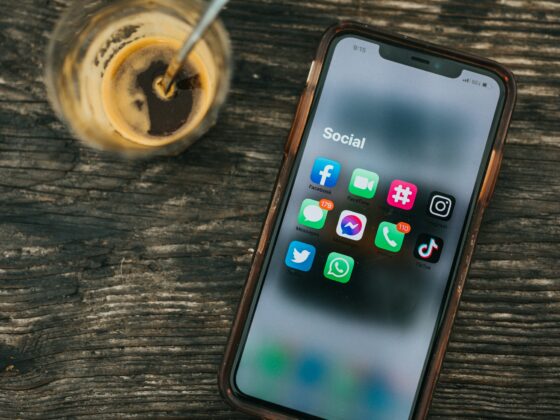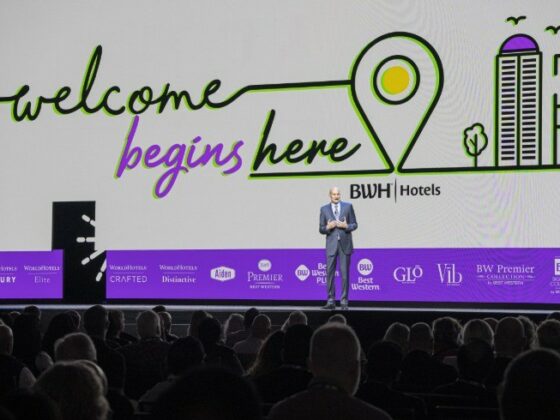
In the hospitality industry, creating an exceptional customer experience is paramount. Hotels, in particular, require personalized and timely communication methods to communicate with their guests. Whether confirming reservations, addressing special requests or providing updates about stays, the voice channel remains the first and most direct touchpoint between hotels and their customers.
Unfortunately, ‘high-touch’ businesses, like hotels, that rely on the voice channel have become prime targets for bad actors with robocall scams and impersonation attacks – threats that can severely undermine the reputation of hospitality brands and, in turn, the confidence and loyalty of their customers.
As bad actors continue to launch convincing robocall and robotext scam campaigns, business and leisure travelers are less comfortable engaging with the voice channel: 68% of consumers say they never answer phone calls from unknown numbers, while another 87% believe businesses should do more to protect consumers.
Repercussions are dire for hotels. These scams introduce legal challenges and increase operational costs and have become a significant detriment to revenue potential and the bottom line. Securing the voice channel is no longer optional – it is essential. Hotel brands, including those that rely on contact centers to reach customers, must modernize their outbound communication strategies to ensure guests can trust voice communications that appear to originate from their brand.
The Growing Threat of Impersonation Scams in Hospitality
Impersonation scams through telephone number spoofing have become increasingly sophisticated as malicious actors leverage artificial intelligence (AI) to enhance their schemes. As generative AI capabilities expand, bad actors can easily create more realistic voice call scams capable of fooling even the savviest travelers and hotel employees. AI technology used for voice deepfakes is already capable of mimicking the essential qualities of a voice (i.e. diction, tone and cadence); however, they will soon be capable of replicating background sounds, making the attacks seem even more convincing and realistic.
By spoofing a hotel’s phone number or the voice and tone of professional customer service representatives, bad actors lure consumers into sharing sensitive personal information or making payments under false pretenses, believing they are interacting with a trusted brand.
Even the most established hotel enterprises are not immune to such attacks. Last year, a hacker targeted MGM Resorts by posing as an employee who forgot his password and asked tech support to have his credentials reset. He then used that to access the company’s corporate systems to steal more than $30 million.
A recent survey of contact center decision-makers found that 94% of respondents are highly concerned with the impact of spam and fraud on outbound calling, and 91% said customers sometimes respond with hesitation or suspicion when it comes to identity verification processes. Hotel enterprises and their outbound contact centers clearly face a crucial challenge in defending their operations against fraudulent attacks.
Growing Adoption of Call Authentication and Branded Calling
The surge in robocall scams has created an urgent need for hospitality brands to equip their contact centers – and their voice channel – with robust fraud prevention strategies. This responsibility has increasingly fallen on CTOs, CIOs, CISOs and IT department leaders. The call for more protection is coming not only from customers but from industry as well. In fact, 92% of contact center executives believe it is the responsibility of businesses to protect customers from spam and fraud related to outbound calling.
Creating an effective strategy to secure the voice channel can be strengthened with several components.
Branded Calling. Hoteliers and hospitality brands must ensure critical call information – such as brand name and logo – is displayed on outbound calls. By branding calls, hotels and their contact center operators can establish trust with recipients, allowing customers to identify the source of the call and feel confident to answer.
Call Authentication. Having a call authentication process that verifies each outgoing call originating from an authorized telephone number helps eliminate customer uncertainty.
Spoof Protection. Unauthorized calls should be intercepted and blocked before reaching customers, preventing fraudsters from making contact.
Call Analytics. By working with carrier partners that utilize AI-driven analytics and machine learning, hotels and their contact centers can generate detailed call reputation profiles that provide accurate differentiation between legitimate calls and fraudulent ones, offering enhanced protection against unwanted robocalls and scams.
AI to combat AI. Tools like voice biometrics and AI-powered spam detection can identify fraudulent calls and block AI-generated calls, protecting customers against impersonation and spoofing attacks. By using AI to fight AI-driven threats, hotels can enhance their security standards, protect sensitive data and build trust with customers.
Customer demand for these solutions is high: 63% of consumers say they would answer a call from a hospitality or travel brand if the name and logo were displayed on the call screen.
The time for hotels to digitally transform their contact centers and voice channels is now. By establishing a foundation for more secure and reliable communication channels, hotels will proactively address telephone number spoofing and fraud risks. Secure outbound communication channels not only reinforce the credibility of hotels’ brands but facilitate a smoother and stronger customer experience.
ABOUT THE AUTHOR
Jim Tyrrell is Vice President of Global Product Strategy at TNS with specific responsibility for TNS’ Communications Market.







